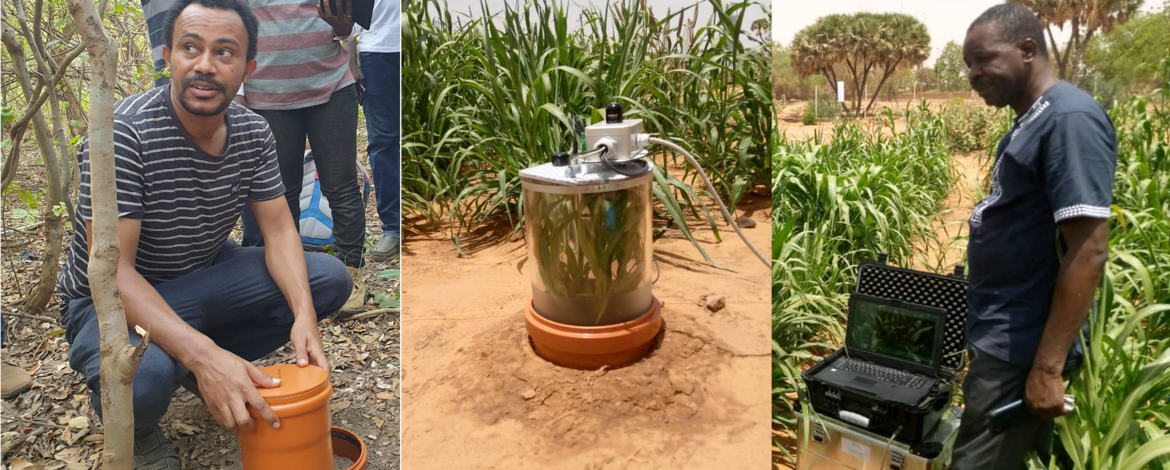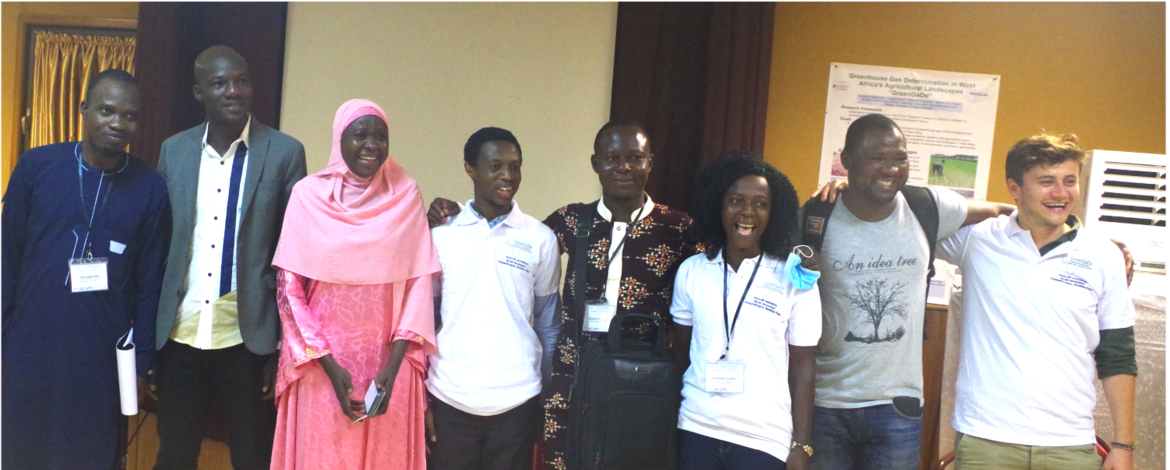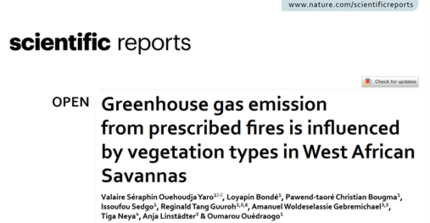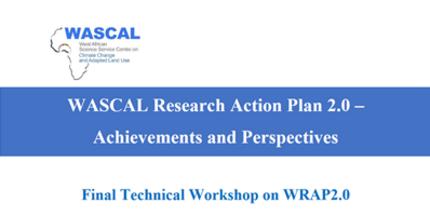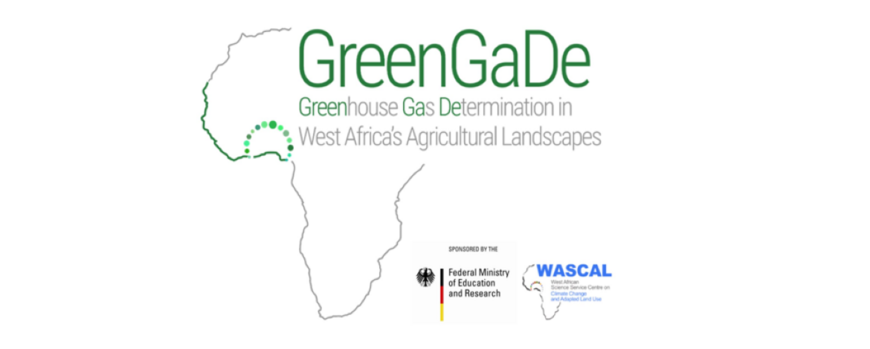GreenGaDe project: Greenhouse Gas Determination in West Africa’s Agricultural Landscapes
Food production systems contribute significantly to global warming and are responsible for 19–29% of global greenhouse gas emissions. Especially in developing countries, 90% of greenhouse gas emissions originate from agriculture and deforestation. So far, it is not known how much greenhouse gases are released by different agricultural systems and management practices. In order to provide policymakers and managers with a clear basis for decision-making, such data and predictions are essential. This is the goal of GreenGaDe, a project funded by the German Federal Ministry of Education and Research (BMBF, runtime: 04/2021–12/2024) and being embedded in the trans-disciplinary West African Science Service Centre on Climate Change and Adapted Land Use (WASCAL). In GreenGaDe, specialists in agronomy, forestry, modelling, environmental chemistry and monitoring, and sociology from Germany and three West African countries (Burkina Faso, Ghana and Niger) are working closely together. The scientists examine and compare different agro-ecosystems in West Africa, including forests, open savannahs, pastures and fields.



